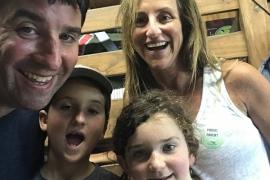In honor of #AutismAwarenessMonth, Addie Angelov, PhD, and Pamela Wright, EdD, discuss how to set up a successful camp experience for children with autism.
Sending your child to camp for the first time can be a stressful experience for any parent. For parents of a child with autism, the idea of sending your child to camp may feel especially overwhelming. While there are lots of details to be worked out, camp could be a great way for your child to build positive life experiences that other environments may not be able to offer. Camp allows your child to build a foundation for social and sensory growth and provides families with time to care for caregivers.
To have a successful camp experience, you must first choose the best camp for your child. Here are a few tips on how to pick the right camp:
- Visit the camp first, ideally at least a month ahead of time.
- What is the reputation of the camp in the local community and disability community?
- Are staff trained to work with campers with autism? Have they passed a federal background check?
- Will the ratio of camp staff and number of campers with autism be a number you are comfortable with?
- Does the camp accommodate special dietary needs?
- Is your child comfortable with the setting?
- What does the daily schedule and routine look like?
- Do any of your child’s friends from school attend this camp?
Once you’ve selected a camp, use the following steps to prepare your child for the experience:
- Talk about the decision to go to camp with your child.
- Practice daily living skills your child may need to do on their own at camp.
- Create a social story about having a good camp experience and read it multiple times with your child. Be sure to include getting dropped off at camp, saying goodbye to family, activities they will engage with at camp, saying goodbye to new friends, and coming home to family.
- Go over the packing list and talk about what they will be using at camp. Make sure your child knows how to use everything appropriately and include necessary transitional items like a favorite toy, stuffed animal, or family photo.
- Share concerns about behavior and allergies with camp staff. Your child may get overstimulated, tired, or exposed to new foods, all of which can lead to meltdowns. Have a plan you and the camp staff are comfortable with for these situations.
Addie Angelov has a PhD in special education and serves as director of research for the Indiana Department of Education. Pamela Wright has an EdD in school administration and serves as director of special education for the Indiana Department of Education.
